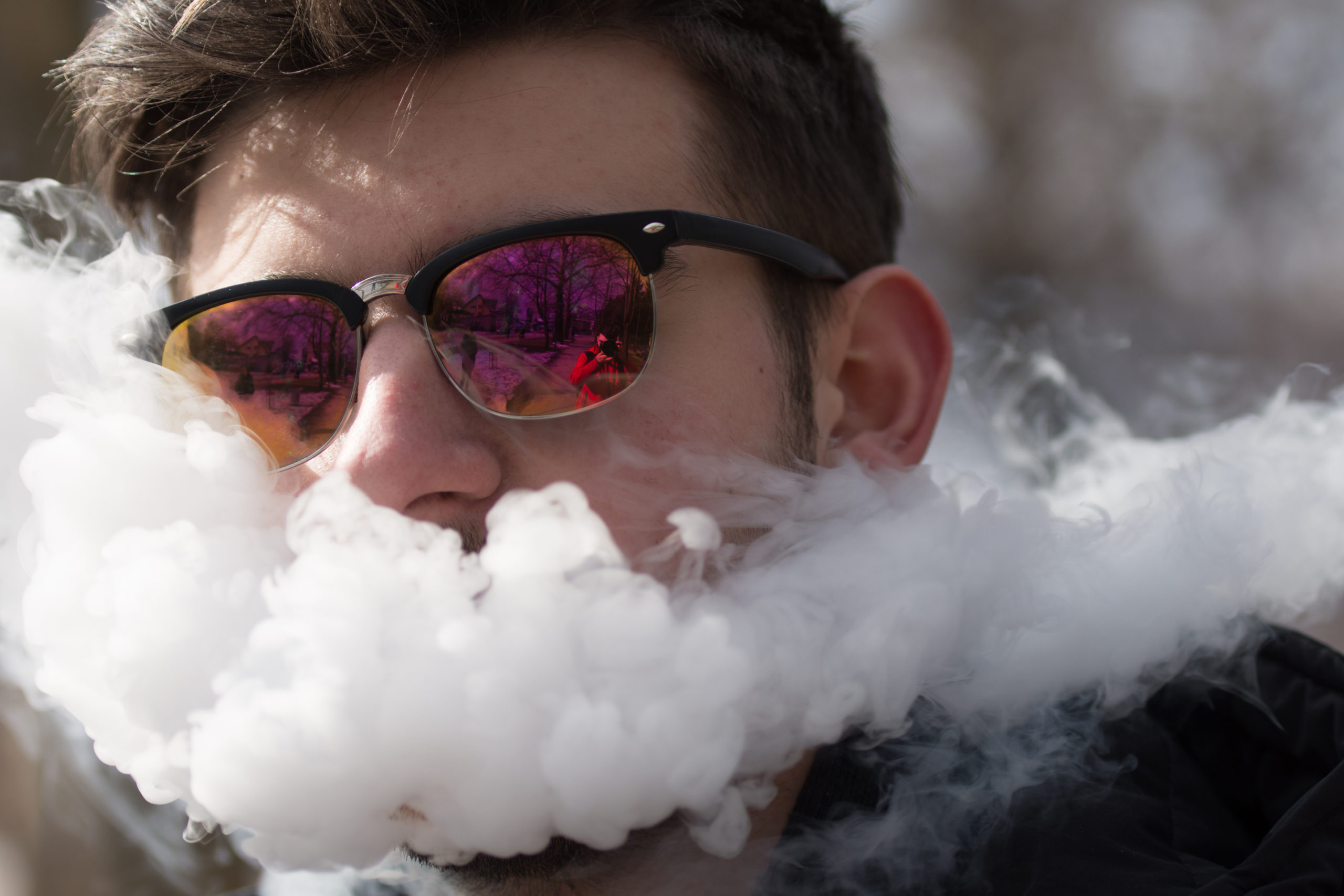If you’ve followed our blogs, then you know we’ve covered the vaping topic many times. E-cigarettes have been proven to do serious damage to the lungs and can be highly addictive; per recent research reports. Now, though, the trend is being declared a full-blown epidemic among teens throughout the United States.
The New York Times published a report on these latest findings, quoting several prominent researchers. Dr. Robert R. Redfield, a director for the Centers of Disease Control and Prevention (CDC), spoke with the outlet; highlighting some dangerous indicators which mirror previous cigarette use among teens.
“Youth e-cigarette use remains an epidemic,” Dr. Redfield declared. “We’re stepping backward from all the advances we’ve made in tobacco control. I’m worried that we will eventually return to the tobacco situation of yore. There’s evidence that kids who vape are four to five times more likely the next year to experiment with cigarettes for the first time.”
Over the past two years, vaping among high schoolers has increased substantially. According to CDC research gathered in 2019, as much as one quarter of all 12th graders were vaping nicotine regularly. The positive news is that those numbers have gone down in 2020. But that, of course, can be attributed to quarantining and less exposure to high school peers. It is believed that once schools and socializing resume, the uptick will continue to grow.
The company Juul (who we’ve brought up many times before) was also heavily referenced in the Times piece, emphasizing how their marketing ploys are continuing to lure in vulnerable teens. Their products are also known to be quite potent. According to the article, a single Juul pod contains the nicotine equivalent of a pack of traditional cigarettes.
Indiana University School of Medicine researcher Erika R. Cheng also spoke to the Times, specifically referencing the dangers that Juul products pose.
“Juul made it cool, and young people who had never smoked cigarettes are becoming addicted to nicotine,” she explained. “In addition to nicotine, these pods contain a mix of glycerol, propylene glycol, benzoic acid and flavoring agents, the long-term health effects of which have yet to be determined.”
And that brings us right back to the addiction topic. Nicotine, as we all know, is highly addictive and can pave the way to much harsher dependencies; such as alcoholism or drugs. Among the vulnerable teen set, this poses a significant risk. We do think that the vaping conversation needs to pushed more to the forefront, as it’s a quickly growing habit that can put young people on the path towards using.







